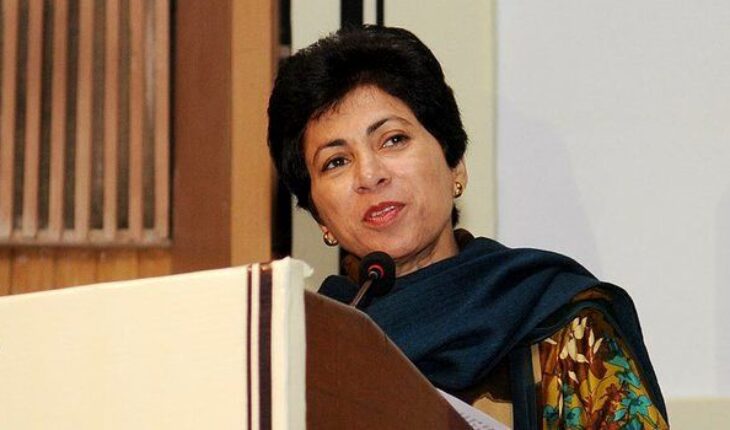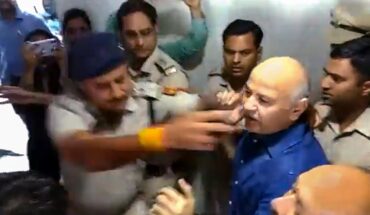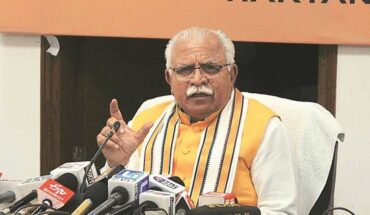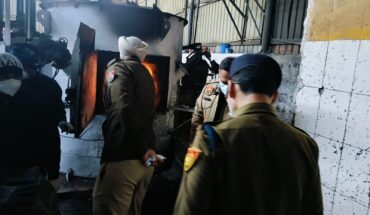* Scheme is falling victim to corruption BJP government misleading farmers in every way- Kumari Selja
Chandigarh: The General Secretary of the All India Congress Committee, former Union Minister, and MP of Sirsa, Kumari Selja has said that the waste management is proving to be a problem for all states across the country, but in Haryana, improper waste management has become a source of trouble for people. Drains get clogged with garbage, leading to an increase in flies and mosquitoes, which raises the risk of diseases like dengue, malaria, and chikungunya. Many major scams have occurred in the name of waste management in the state, but no action has been taken. It can be said that the waste management scheme is succumbing to corruption. The government should take strict steps in this direction in the interest of the public.
In a statement released to the media, Kumari Selja said that the National Green Tribunal has issued an order stating that garbage should only be dumped at locations designated by the local administration. If any individual or organization is found dumping waste outside these specified locations, action will be taken against them. A fine of up to fifty thousand rupees can be imposed on those caught dumping waste elsewhere. However, it is often observed that people secretly dispose of their household or institutional waste in drains, sewers, or on the roadsides, either during the day or under the cover of night. This causes inconvenience to people passing by as drains get clogged with garbage. This also leads to water accumulation on roads, which not only causes inconvenience but also increases the risk of diseases like dengue, malaria, and chikungunya due to the breeding of flies and mosquitoes.
Kumari Selja said that plastic waste poses a significant problem in the state. Although the government claims that around 78 percent of plastic waste is being recycled, the issue of waste disposal plants in Gurugram and Faridabad has always been a topic of debate in the assembly. The garbage heaps in Gurugram and Sirsa continue to grow, and Faridabad’s waste is also being dumped near Gurugram. The garbage piles in Smart City Karnal, Panchkula, Ambala, and Millennium City Gurugram reveal the true extent of development there. The most concerning issue is that despite numerous major scams in the name of waste management, no action has been taken against any responsible individuals to date.
The General Secretary of the All India Congress Committee, former Union Minister, and MP from Sirsa, Kumari Selja, said that the BJP government is only misleading farmers by giving assurances. If there is no shortage of DAP fertilizer in the state, then why are farmers struggling to obtain it? The truth is that due to the shortage of this fertilizer, the wheat sowing target is not being met. On the other hand, the demand for urea fertilizer is also increasing, causing further distress among farmers. If the BJP government in the state cares about the interests of farmers, it must address their problems immediately.
In a statement released to the media, Kumari Selja said that, like last year, this time too, farmers in Haryana and other states had to face a DAP fertilizer crisis. Although the government claims there was no shortage of DAP, around 40,000 tons less was distributed when the demand was at its peak. Instead of the situation improving, the problem has been worsening each year. This time, the demand is even higher than the previous year. During the wheat sowing season, the shortage of DAP fertilizer is becoming a major issue. No district in the state has been able to supply fertilizer according to the demand. The government claims there is no shortage, but officials say that most DAP is supplied via sea routes from Jordan, Russia, and Israel. Currently, this route is closed, causing ships to take an additional 6,500 kilometers, leading to a 15-day delay in arrival. Chief Minister Nayab Singh’s assurance is for farmers to be patient; everyone will receive fertilizer. Kumari Selja said that now farmers have a greater need for urea fertilizer, but it is also not available in sufficient quantity, forcing farmers to make multiple rounds to obtain it. Agricultural officers and scientists must find alternatives for this fertilizer. Farmers need to be informed that excessive use of fertilizers and pesticides makes food grains toxic. She said if it is necessary to provide DAP fertilizer to farmers, the government must maintain an adequate stock. If sowing is delayed, crop production will also be affected. The government must take appropriate steps to address every small and big project.
Kumari Selja, said that the BJP government is only misleading farmers by giving assurances. If there is no shortage of DAP fertilizer in the state, then why are farmers struggling to obtain it? The truth is that due to the shortage of this fertilizer, the wheat sowing target is not being met. On the other hand, the demand for urea fertilizer is also increasing, causing further distress among farmers. If the BJP government in the state cares about the interests of farmers, it must address their problems immediately.
In a statement released to the media, Kumari Selja said that, like last year, this time too, farmers in Haryana and other states had to face a DAP fertilizer crisis. Although the government claims there was no shortage of DAP, around 40,000 tons less was distributed when the demand was at its peak. Instead of the situation improving, the problem has been worsening each year. This time, the demand is even higher than the previous year. During the wheat sowing season, the shortage of DAP fertilizer is becoming a major issue. No district in the state has been able to supply fertilizer according to the demand.
The government claims there is no shortage, but officials say that most DAP is supplied via sea routes from Jordan, Russia, and Israel. Currently, this route is closed, causing ships to take an additional 6,500 kilometers, leading to a 15-day delay in arrival. Chief Minister Nayab Singh’s assurance is for farmers to be patient; everyone will receive fertilizer. Kumari Selja said that now farmers have a greater need for urea fertilizer, but it is also not available in sufficient quantity, forcing farmers to make multiple rounds to obtain it. Agricultural officers and scientists must find alternatives for this fertilizer. Farmers need to be informed that excessive use of fertilizers and pesticides makes food grains toxic. She said if it is necessary to provide DAP fertilizer to farmers, the government must maintain an adequate stock. If sowing is delayed, crop production will also be affected. The government must take appropriate steps to address every small and big problem of the farmers






